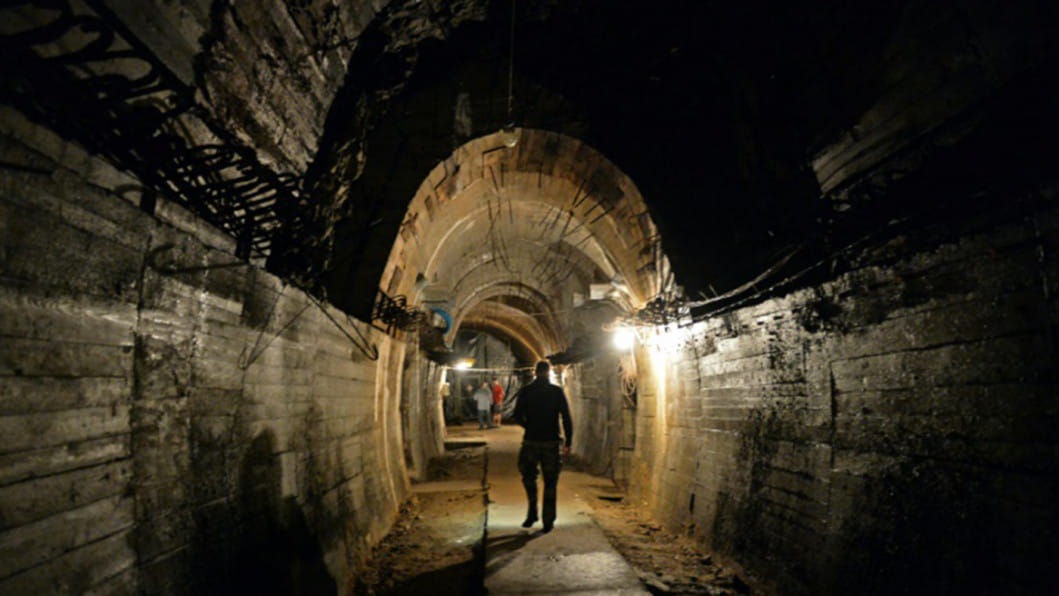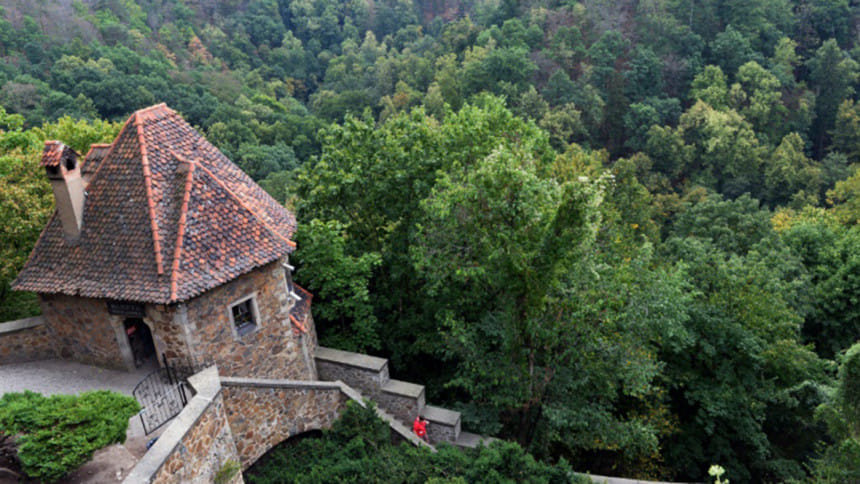Men claiming discovery of Nazi 'gold train' go public

Two treasure hunters claiming to have discovered a Nazi "gold train" went public for the first time but failed to reveal evidence for the alleged find they insist is "irrefutable".
The men, who identified themselves as Piotr Koper, a Pole, and German national Andreas Richter, told Poland's TVP public broadcaster they would only communicate via their lawyers from now on.
Authorities in Poland's southwestern province of Lower Silesia where the armoured train is allegedly buried cast doubt on its existence earlier this week, insisting there was no credible evidence for it.
The Polish military has since deployed technicians to check the area in question.
"We have irrefutable evidence it exists," Koper told TVP Friday, adding that "we aren't responsible for the media circus surrounding the train".
He insisted that evidence the pair had presented confidentially to local authorities on August 18 had later been leaked to the media.
The men, who under Polish law are entitled to a 10 percent finders' fee, say they have enough funding to independently excavate the train and its presumed treasures.
They vowed to use part of the finder's fee earned from the discovery to set up a museum at the site.
Lower Silesia Governor Tomasz Smolarz said Monday it was "impossible to claim that such a find actually exists at the location indicated based on the documents that have been submitted".
This came just days after senior culture ministry official Piotr Zuchowski said he was "more than 99 percent sure" an armoured train had been found based on ground-penetrating radar images.
Zuchowski also claimed that someone who had been involved in hiding the train, presumed to be over 100 metres (330 feet) in length, had disclosed its location before dying.
Police have blocked off the presumed location of the train along a stretch of active railway tracks in a bid to prevent accidents as a curious public swamps the area near the city of Walbrzych.
Global media have become fascinated by the prospect of a railway car full of jewels and gold stolen by the Nazis.
The World Jewish Congress has asked that any valuables found that once belonged to victims of the Holocaust should be returned to their owners or heirs.
Rumours of two special Nazi trains disappearing in the spring of 1945, towards the end of World War II, have been circulating for years, capturing the imagination of countless treasure hunters.
The lore is fuelled by a massive network of secret underground tunnels near Walbrzych -- including around the massive Ksiaz Castle -- that Nazi Germany built and where legend has it the Third Reich stashed looted valuables.


 For all latest news, follow The Daily Star's Google News channel.
For all latest news, follow The Daily Star's Google News channel. 



Comments